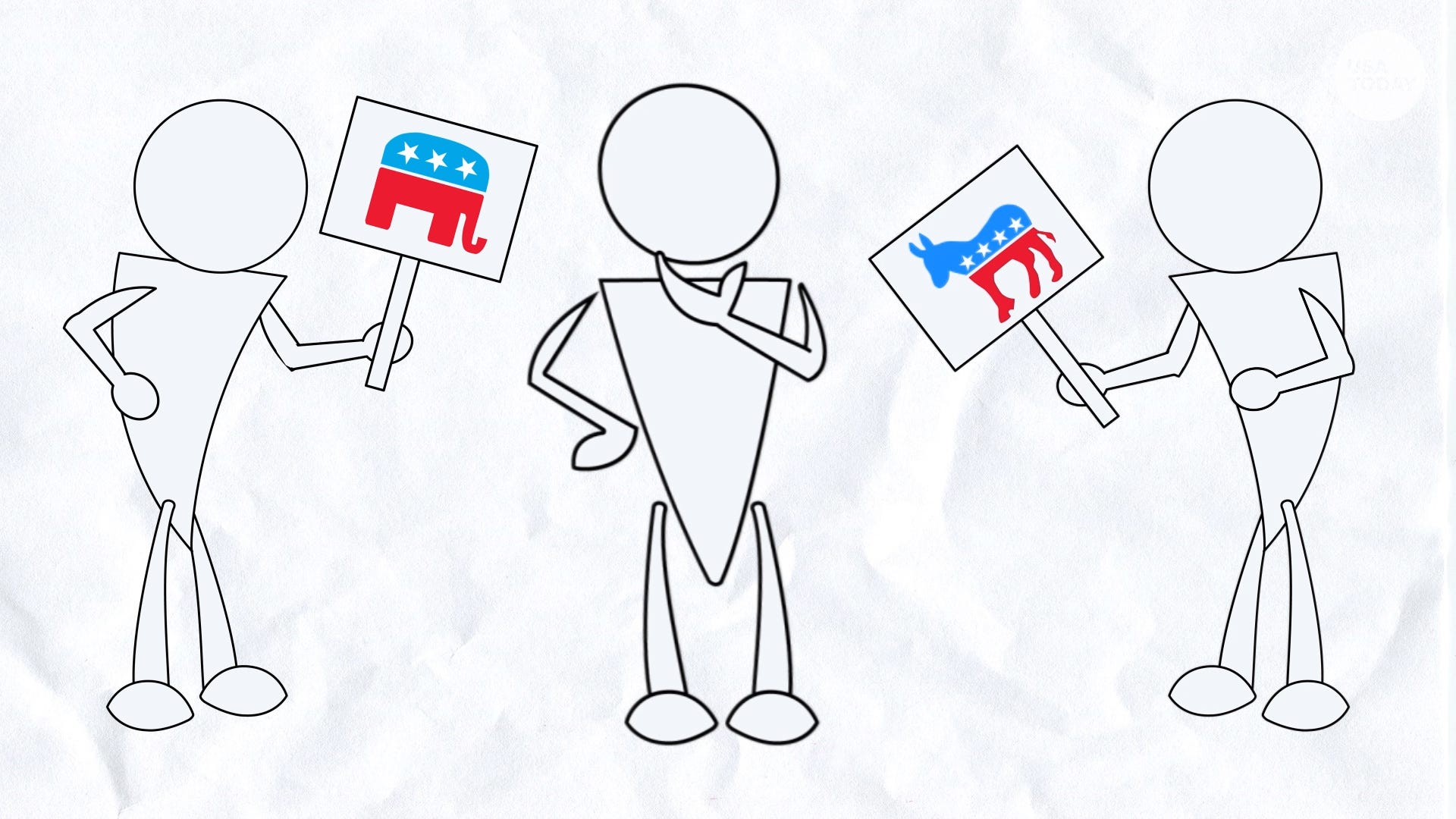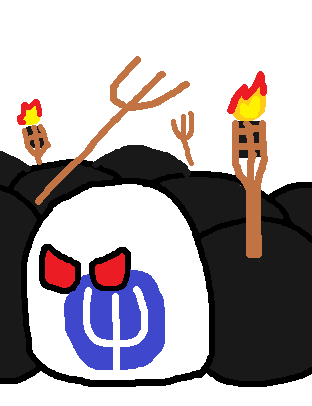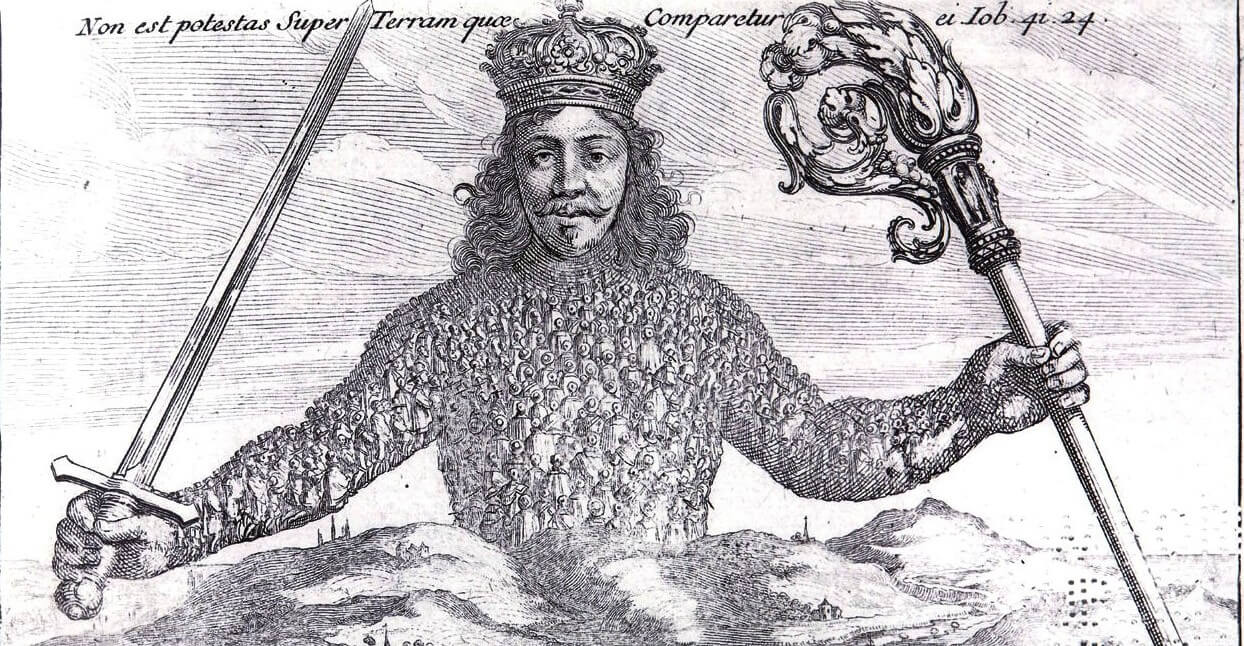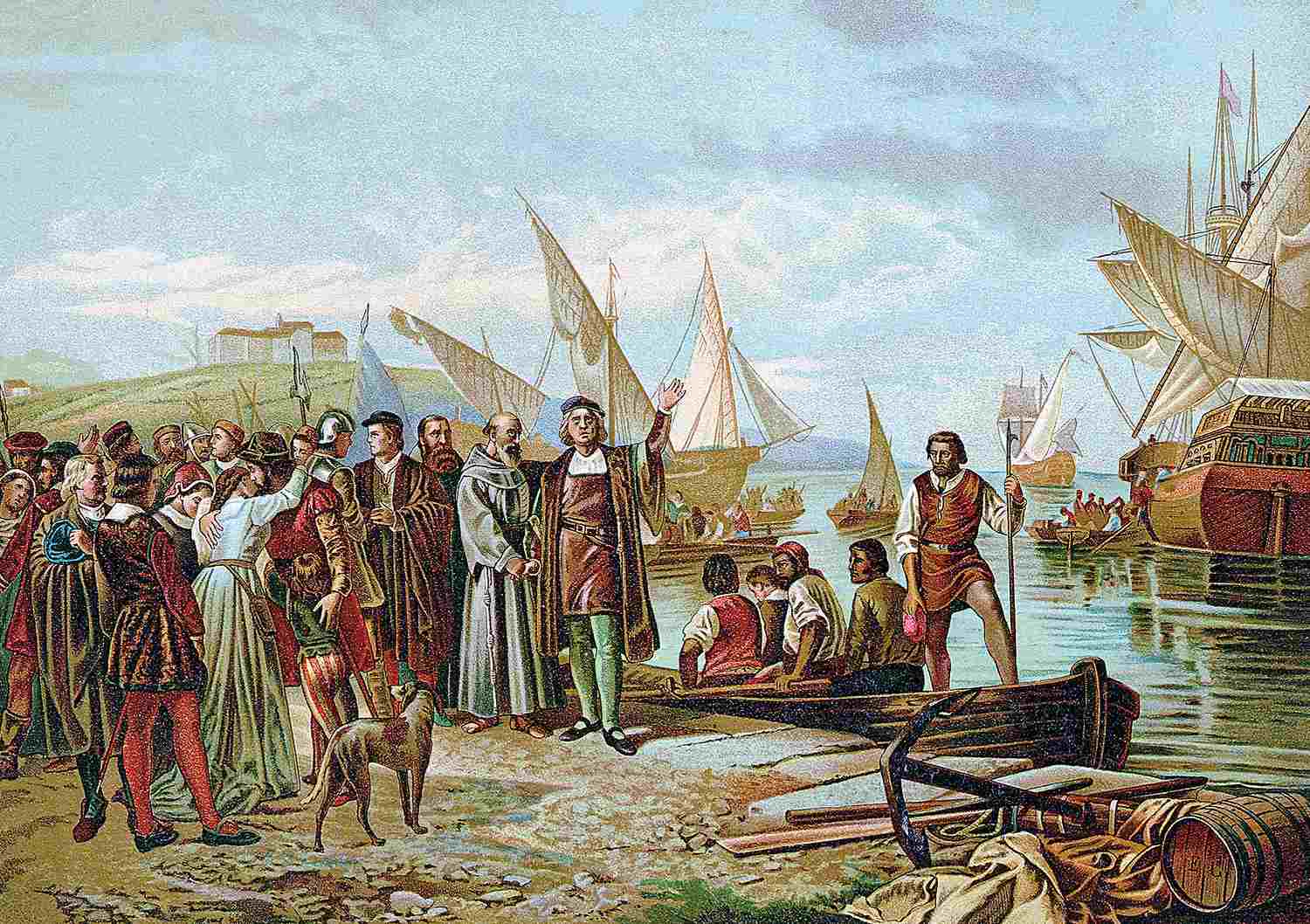Now we finally reached the end of Middle Ages and entered next age. This period has many names. Some like to call it Renaissance to emphasize rediscovery of Ancient Roman culture and knowledge. Other emphasize discovery of the New World and colonialism. Yet others would mention Protestant Reformation, or Enlightenment. There was a lot going on, the world was changing in many ways.
Stagnation of unchanging and inflexible Middle Ages was over. Just like at the end of Roman Empire during Dark Ages world started to evolve and change. The only difference is that this time humanity welcomed rather than detested such change.
Yet there are many similarities with Dark Ages. In my article I mentioned how reach of Roman culture has increased during Dark ages, when it reached places as distant as Ireland or Baltic Areas. Even for a soldier of High Roman Empire, the Empire reach was limited by Rhine and Danube. Romans have established their way of life West and South of these two rivers, North and East of it there was terra incognita, inhabitant by barbarians. It was Dark Ages that first took these barbarians to Rome and later they spread Roman ways of life to their areas. Nowadays such a puny barrier such as river sounds laughable, but back in the days that was the reality of life.
During age of discovery Western Civilization managed to cross yet another such once impassible barrier, Atlantic Ocean. Older ships could not sail in ocean waters with such high waves, they would just capsize. Yet by 1450s Portughese and Spanish could finally build a ship sturdy enough to weather such conditions. This new type of ship unlocked for Europeans the whole new world of beyond the ocean. Finally, Europeans could sail west and colonize. They could also travel Around Africa to far east (modern India and Indonesia) and see for themselves the places, where Muslim merchants procured the spices, they sold to the west. Not to mention they were able to get them there directly, bypassing the greedy middleman.
European world has grown once again to the limits we know today. In the East Europeans came in contact with every other civilization that inhabits this earth, even as far and hard to reach as Japan. In addition to ever popular India and Indonesia, Marko Polo visited China.
In the West Pizzaro fought Aztecs and claimed modern Mexico for Spain. Spanish found gold and silver and then exported it using their famous Galleons. These in turn attracted Pirates who routinely hunt for these treasure fleets. Yet another parallel with Dark Age barbarians who pillaged Rome as well as Vikings. On land it was Cossacks and Tatars who pillaged, travelers of the vast steppes. Occasionally they would even organize raids to places are far as Constantinople.
Culture did change as well. Not only because of contact with all these different people who lived across the globe, but internally as well. Protestants challenged the domination of Catholic Church. The once dogmatic and inflexible institution that used threats of burning on a state as heretic to enforce uniformity and compliance from Medieval Population was shaken by Protestant Reformation. Catholic Church did survive it, but its power has diminished. They could no longer claim that everyone who disagrees with Pope is heretic and deserve to burn.
We entered a new era, era of free thinking and innovative ideas. People started to invent new things; technology advanced. World was growing, not just outwards but also upwards.
More efficient methods of agriculture ensured surplus of food and allowed more people to focus on other things in life. People invented harvester to replace archaic manual harvest with sickle or scythe.
New World helped too. Many things we now think ubiquitous actually were imported to Europe from New World, tomatoes, potatoes, turkey, cotton, corn, chocolate, tobacco. Even Middle Eastern coffee was not available in Europe until this era.
Science too advanced forward. We got definitive proof that earth is spherical and that it revolves around sun rather than the other way around.
Historians sometimes call this period simply Modern Era. For an average contemporary person that might sound strange. They would think what could possibly be modern in times of Columbus and pilgrims. Yet there are certain things that our modern days and times of Columbus have in common.
For example, bureaucratic government with a clear division between military and bureaucracy. Medieval baron was ultimate jack of all trades, he ran and supervised food production, selected and trained knights, fought in wars himself, served as judge, lawmaker and ultimate authority in his Manor. All power was concentrated in one person. A concentration that proven itself to be dangerous and inefficient.
It was this post Middle Age Era that did away from that and created departments, each in charge of its own sphere of competence. It eliminated self-serving barons in favor and unified state that could control both military and civilians. Unlike Medieval Barons who made their own food and money to support themselves and their soldiers, Modern Era soldiers were dependent on state for food and other supplies. That eliminated issue of disloyal barons, who could rebel on a whim or simply ignore king.
However, there was another danger in this arrangement. A state that is so powerful, that it can oppress everyone. XX century will show us some examples of that, but that is in the next article.
Some called this system absolutist rule by a monarch, history will soon show that not even king was safe from such state.
End of Age of Discovery
Age of Discovery would eventually end with Age of Revolutions. The Revolutions did not happen in all places simultaneously. Some were earlier and others later. In previous ages that probably also happen but because we have less information about these times, we can name one big date as milestone of change. Here the milestone would be French Revolution, in England, Netherlands and the US saw revolutions earlier than this date, Germany, Italy and Russia later.
However, despite difference in timing, the reasons for revolution were the same. Alleged tyranny of the monarch. The bureaucracy centered on the absolutist king replaced medieval system that was prone to infighting, fragmentation and ineffectiveness. Absolutist system had its own problem, people in power using this power for personal benefit. However instead of every baron de facto king in his manor like late Holy Roman Empire of the German nation, here its king exploits his power for himself and few of his close cronies. Sooner or later tyranny prone absolutism produced such an intolerable monarch. After a series of abuses and number of intolerable acts it led towards his eventual dethronement and often also beheading. I wrote a separate article about it a while back.
Arguable only Spanish King mistreated Dutch out of whim and for no good reason. Both Charles I of England and Louis XVI of France has pressing financial situation. Yet both handled it in a ham-fisted way, forcing powerless commoners to foot the bill for themselves and their loyal servants in lofty corridors of power. In both cases it backfired and led to their death.
However, there was another underlying problem that caused this in the first place. Draining down of state revenue. Remember how Spanish found plenty of silver in New World and were transporting it to old one in Galleons. The Age of Discovery did produce higher level of income, not just through silver but through other things as well. The countries and their people got hooked up on better life these newly found sources of wealth could afford them and begun enjoying themselves. Everyone prospered, population grew, rich threw millions on vanity projects, average became well off, poor became average. Improvement across the board.
However, such new standard of living could only continue so long as the sources of wealth continue. Should silver mines dry out of we run out of undiscovered places to find, exploit and colonize, then what. Everyone expects a new big bounty, but such bounty is nor forthcoming. If it not forthcoming, then money has to be found elsewhere to cover the shortage, or someone has to go without.
However, no one wants to cut on their own levels of prosperity. King Charles I of England introduced many new taxes to pay his army, people did not want to pay these. Resulting Civil War ended King's rule and life.
During early 18th century French liked to jokes that things like English Civil War could never happen in France as Frech people love their King and will never behead him. After both costly and unsuccessful 7 Years War, France had the same problem as Charles I of England, King and the court too did not want to cut on their standards of living and introduced new taxes for the poor. Poor have revolted and King and Monarchy were no more. Frech Revolution surely eclipsed English Civil War in its brutality.
Now loyal to government people in Russia say that this can never happen in Russia because Russian people are not like those in liberal Europe and like autocrats like Putin. However, I will tell you that when oil money run out it will end up worse than French Revolution.
Fundamentally however no King rules alone and absolutism does not change this fact. During heigts of French prosperity Louis XIV said that he is the state. Built on corsairs, colonies, conquests and clever diplomatic moves like succeeding Charles II of Spain, this prosperity indeed allowed him and his first descendant to indulge themselves. However, it unexpectedly came to an end, and it turned out that he was not the state. The state could easily replace him just like anyone else.
Age of Revolutions
Age of Revolutions is a transitional phase that put curtain on Age of Discovery and eventually ushered a next era, Era of Nations that we begin to exist at the very end of XX century.
Like other such transitional eras, there is a conflict between new and old ways. Here conflict was very literal and obvious. Napoleon and his armies represented this new order. Anti-Napoleon coalitions that united Europe against him represented desire of old powers to keep their power and preserve system as it was before French Revolution. People do not want to lose anything, and power is not exceptions.
Absolutist Monarch of Europe saw French Revolution as an attempt to steal a state from them by an angry mob who is not entitled to it. Remember famous Louis XIV phrase, other Kings thought of themselves the same way and saw Revolution as attempt to steal this state from them.
On the opposite end of the corner were notions of public sovereignty and democracy. We the people, create the state and can change it, remove officials, elect new ones and so on. It's not King who owns the state, but rather serves it.
The argument between Charles I of England and Parliament was essentially the same clash of fundamental principles. Charles, I did say essentially the same thing as Louis XIV, but in a different wording. Parliament did rebuke him, by judging that he betrayed the state he owed loyalty to.
During French Revolution at early stages Assembly did change King's title from King of France to King of the French, to represent this idea. Not a King who owns France as property but a King who represents French people. King did not like this change. Eventually Robespierre deemed him disloyal to the new system and executed him.
This conflict between these two conflicting fundamental principles of state foundation was at the heart of every revolution. When it happened in England, they thought it was just local English peculiarity but when it happened in France and Napoleon was all too willing to export it to the rest of Europe, the Europe has united against him.
Napoleon lost, eventually. Those who defeated him even formed a Holy Alliance - Wikipedia to prevent democratic rule in Europe. UK refused to participate straightaway, but Austria Prussia and Russia were all for autocracy. They promise to help each other to suppress all popular insurgencies and did act on it. Russia prevented liberal revolutions in Austria, Italy and Germany in 1848 by sending their soldiers to kill civilians to keep monarchs in power.
However, what Revolution has created could not be undone anymore. It spread countries that defeated Napoleon and soon their own citizens were trying to overthrow the government and establish more democratic system.
After all ideas of people sovereignty and freedom are just too good for people to reject in favor of tyranny of unelected dude who just inherited power from his parents. As much as kings and emperors wanted to protect their right to rule their countries, the world decided to not entertain this way of thinking any longer.
Eventually even Holy Alliance fell apart over various differences over fate of Balkans and such. Russia was eager to suppress revolution abroad and in Europe, yet used is to pry Serbs, Bulgars and Greeks from under Ottoman rule. By 1871 liberals won and United Italy. Germany too was united, even if with consent and leadership of Prussia and under theoretically less liberal constitution. By the end of WWI Austria and what was left of Ottomans fell apart into small ethnic nation states. Russian revolution ended monarchy and created USSR.
Nation states have won and ideas of state by people for people became norm. Time for celebrations or is it. During the course of XX century, we saw some of the best and worst of this model. Ultimately however it too has its own unique challenges to deal with. The final article will address this era of Nation States and its eventual as we now at the very beginning of transition towards a brand-new system that is yet to take shape.












